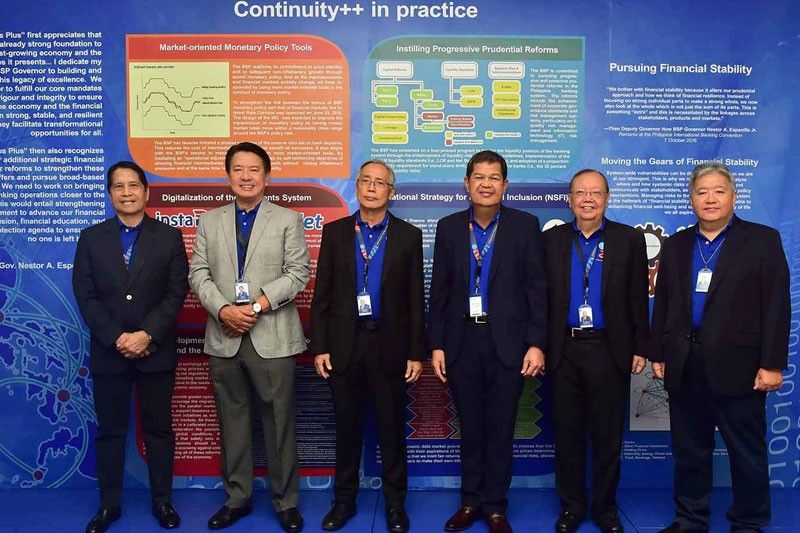Digital fiat currency under BSP scrutiny

MANILA, Philippines — The Bangko Sentral ng Pilipinas (BSP) said it is looking into the issue of central bank-issued digital currencies (CBDCs) and its impact on the financial system.
BSP Governor Nestor Espenilla Jr. said the central bank is keeping close track of the use of virtual currency for trading and fund raising through initial coin offerings (ICOs) as well as the emergence of digital currencies and CBDCs.
“Presently, we are looking into the issue of CBDCs and what it means for the supply of credit and the impact on the financial system,” Espenilla said.
CBDCs, also known as digital fiat currency, is different from digital currency, virtual currency or cryptocurrency such as bitcoins that are not issued by the state and lack the legal tender status declared by the government.
The Bank of England was the first central bank that initiated a global discussion on the prospects for the introduction of a CBDC.
Espenilla said the BSP is collaborating with other regulators for a harmonized regulatory approach on ICOs and virtual currency trading activities.
Likewise, the regulator is working closely with BSP-supervised financial institutions on their respective plans to launch private digital currencies and other pioneering virtual currency technologies.
Espenilla said the regulator continued to further refine existing regulations to effectively respond to digitalization of banking services, financial technology (fintech) developments, and the emergence of technology-related risks, while remaining supportive of financial innovation.
He added the BSP has rationalized the regulatory framework relative to the operations of money service businesses and enhanced the customer due diligence expectations to rebalance the objectives of financial integrity and financial inclusion.
Likewise, the BSP has established a framework for regulating virtual currency exchanges and similar entities operating in the Philippines.
The BSP’s Monetary Board has so far given Betur Inc, Rebittance Inc., BloomSolutions, ETranss, and Virtual Currency Philippines Inc. the green light to operate as virtual currency (VC) exchanges in the country.
Latest data from the BSP showed conversion of virtual currencies into peso and other currencies amounted to $24.16 million, while conversion from peso and other currencies to virtual currencies reached $36.74 million in the first quarter of the year.
In the fourth quarter of last year, the average monthly transactions involving conversion of virtual currencies to peso and other currencies reached $24.79 million, while conversion from peso and other currencies to virtual currencies amounted to $38.27 million.
As early as 2014 when VCs were starting to grow in the Philippine market, the BSP issued an advisory to inform the public of the features, benefits and attendant risks when dealing with virtual currencies.
- Latest






























